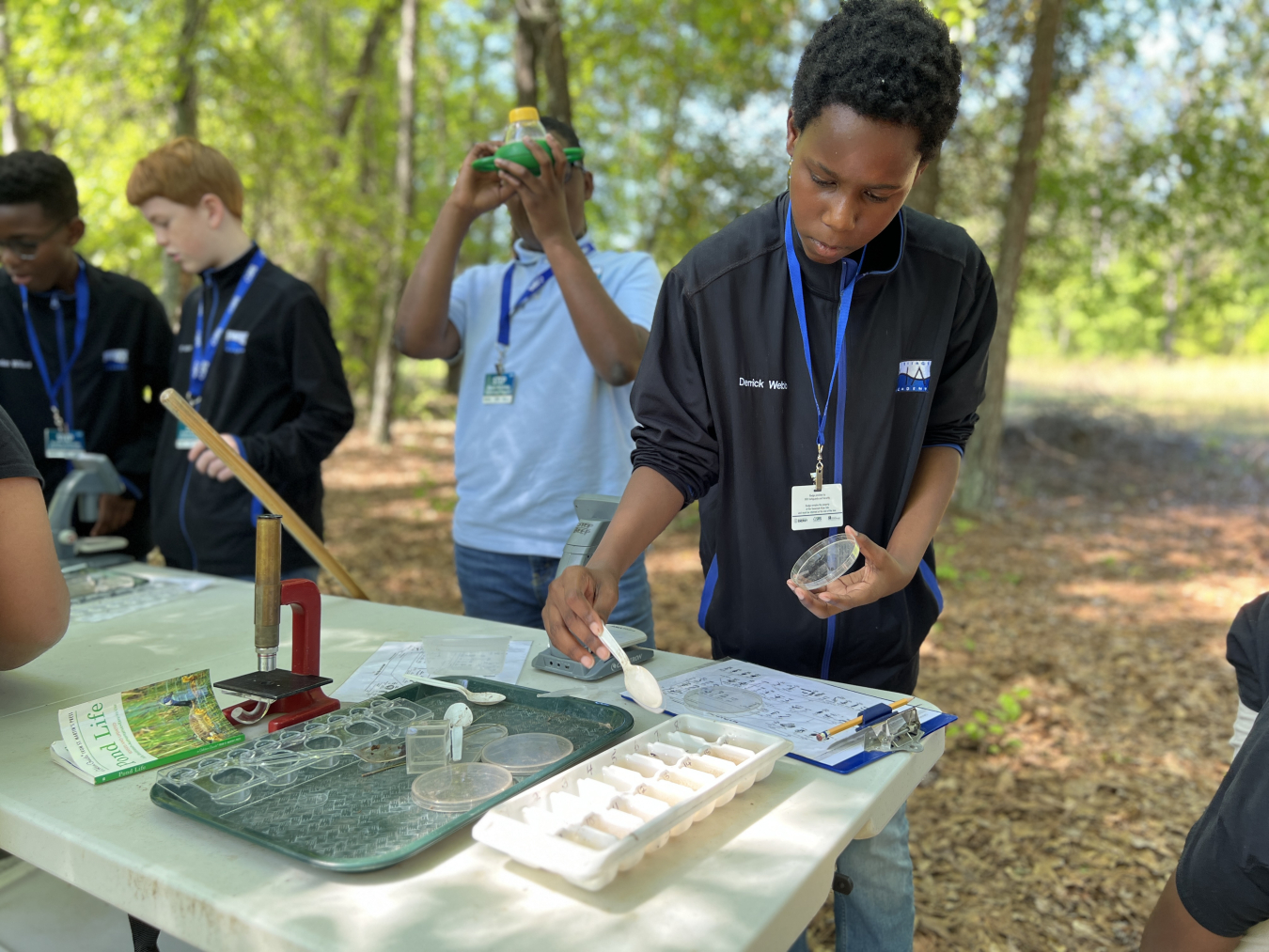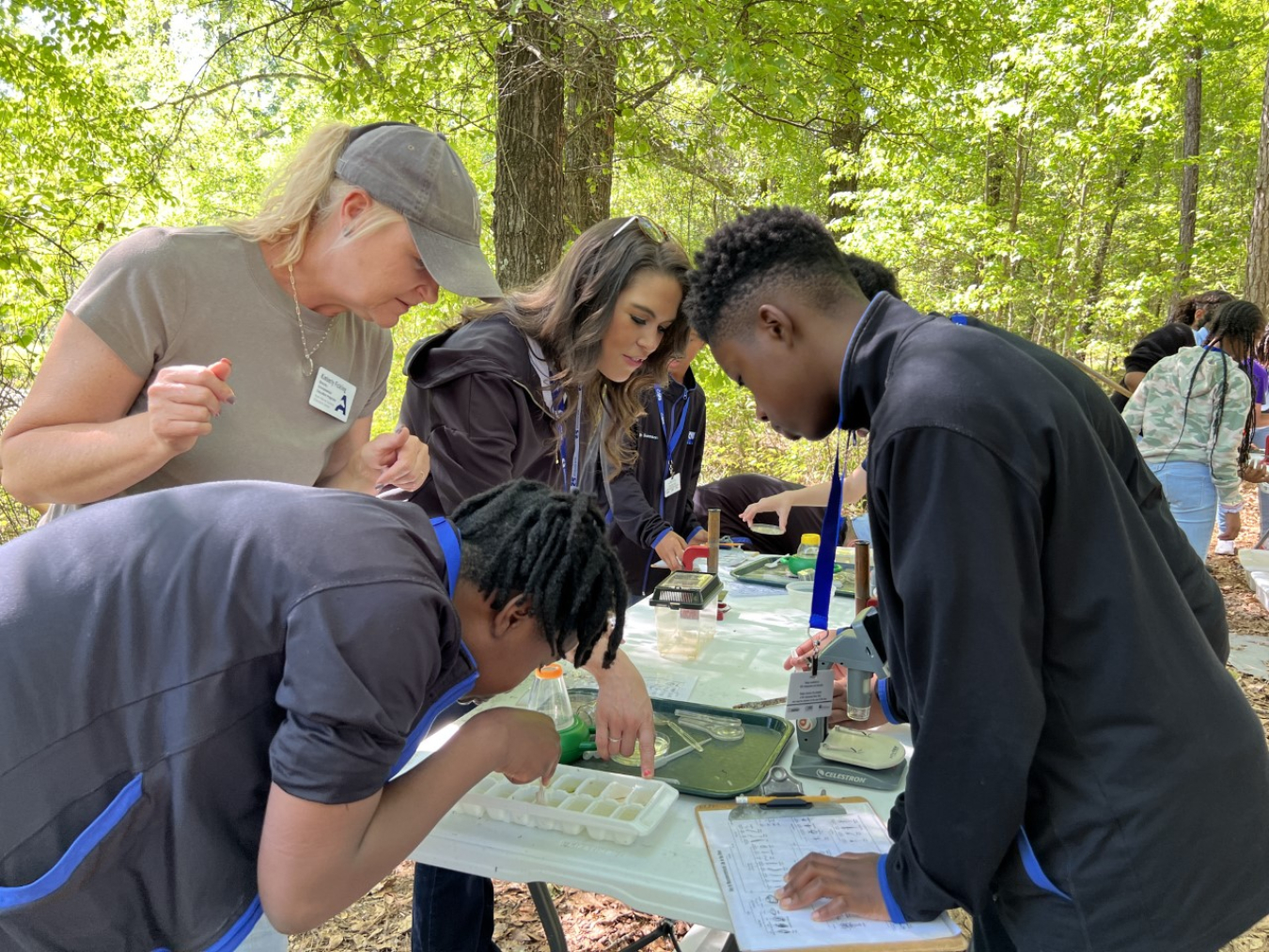More than 50 fifth and sixth grade students from a school in Augusta, Georgia, recently experienced a unique hands-on environmental class in the forests of the Savannah River Site (SRS) to inspire early interest in science, technology, engineering and mat
Office of Environmental Management
May 9, 2023
AIKEN, S.C. – More than 50 fifth and sixth grade students from a school in Augusta, Georgia, recently experienced a unique hands-on environmental class in the forests of the Savannah River Site (SRS) to inspire early interest in science, technology, engineering and mathematics (STEM) careers at the site.
The Science and Technology Enrichment Program (STEP) at SRS is a cooperative effort with the Ruth Patrick Science Education Center, where lessons correlate to academic curriculum for grades three through 12 and use real-world investigations focusing on responsible environmental stewardship.
Kimberly Fickling, the center’s environmental education director, believes every student should have the opportunity to learn from experts in the field.
“We are connecting classroom standards to real hands-on activities that can spark students’ interest in STEM and careers in science,” said Fickling. “We truly bring science to life through these different opportunities.”
The students from Heritage Academy who participated in the recent environmental class completed a macroinvertebrate count and watershed activity that addressed the human impact on healthy ecosystems and how pollution affects major water sources.
“Today I learned that all organisms deserve safety and respect, no matter how small they seem. I loved examining the water scorpion up close under the microscope. These tiny organisms are so important to the health of our water systems,” said Camden Robinson, a sixth grade student at Heritage Academy.

Kimberly Fickling, environmental education director at the Ruth Patrick Science Education Center, far left, and Taylor Rice, Savannah River Nuclear Solutions education outreach specialist, at right of Fickling, assist students in identifying macroinvertebrates under a microscope.
STEP continues to create special experiences for students visiting the site, which is home to many rare and endangered species. Students delve into topics such as preserving the nesting habitat of the endangered red-cockaded woodpecker, constructing watersheds, analyzing manmade pollution and identifying freshwater macroinvertebrates in ponds and streams.
Heritage Academy Program Coordinator Westin Bobadilla believes there is a need for more hands-on activities outside of the classroom.
“Having kids come out and experience these lessons is a very unique and special opportunity,” said Bobadilla. “I really saw these kids break out of their comfort zones and engage with many new scientific instruments during the activities.”
Organizers of the STEP classes have overcome many obstacles. In 2020, COVID-19 halted in-person classes, but the program persevered and shifted to virtual instruction. In 2022, the onsite classrooms predominately used for STEP were shut down, but the program continued at the University of Georgia Savannah River Ecology Laboratory auditorium and onsite outdoor spaces.
“We are having to adapt to this change and shift our program to outdoor areas while sending larger classes to the Savannah River Ecology Laboratory,” said Taylor Rice, education outreach specialist with Savannah River Nuclear Solutions, the site’s managing and operating contractor. “We would love to have our own designated facility and classroom space for education outreach to impact more students on environmental matters.”
SRS plans to continue STEP field trips to showcase the many careers at the site, spark interest in STEM and connect with local schools in the Central Savannah River Area. For more information about a field trip opportunity with STEP, contact Taylor Rice at taylor.rice@srs.gov.
To receive the latest news and updates about the Office of Environmental Management, submit your e-mail address.

